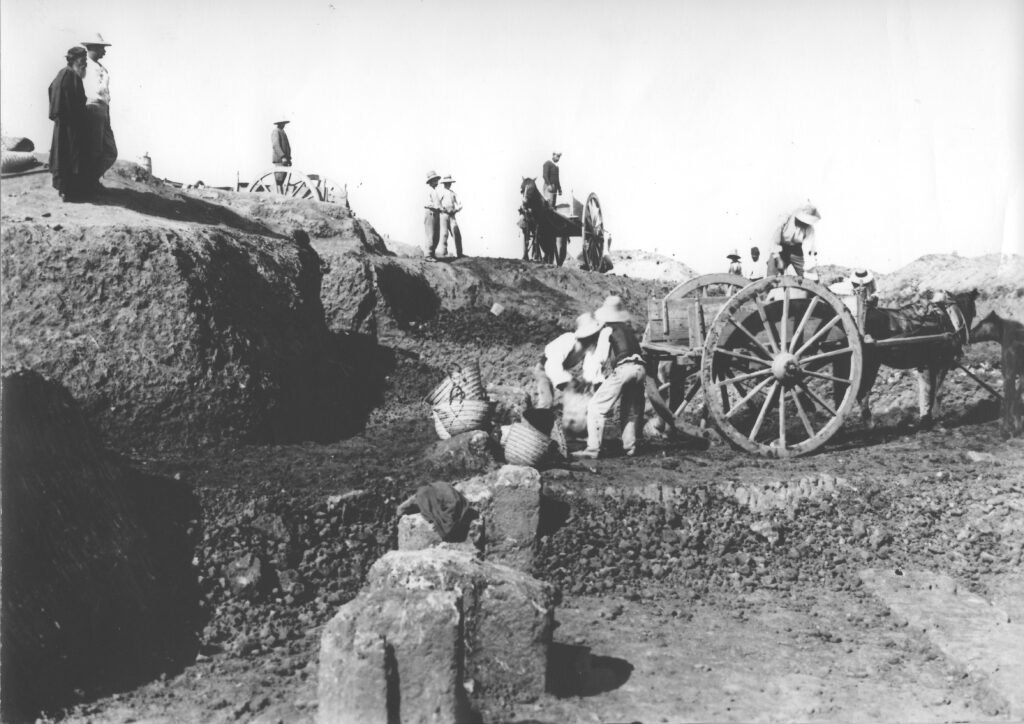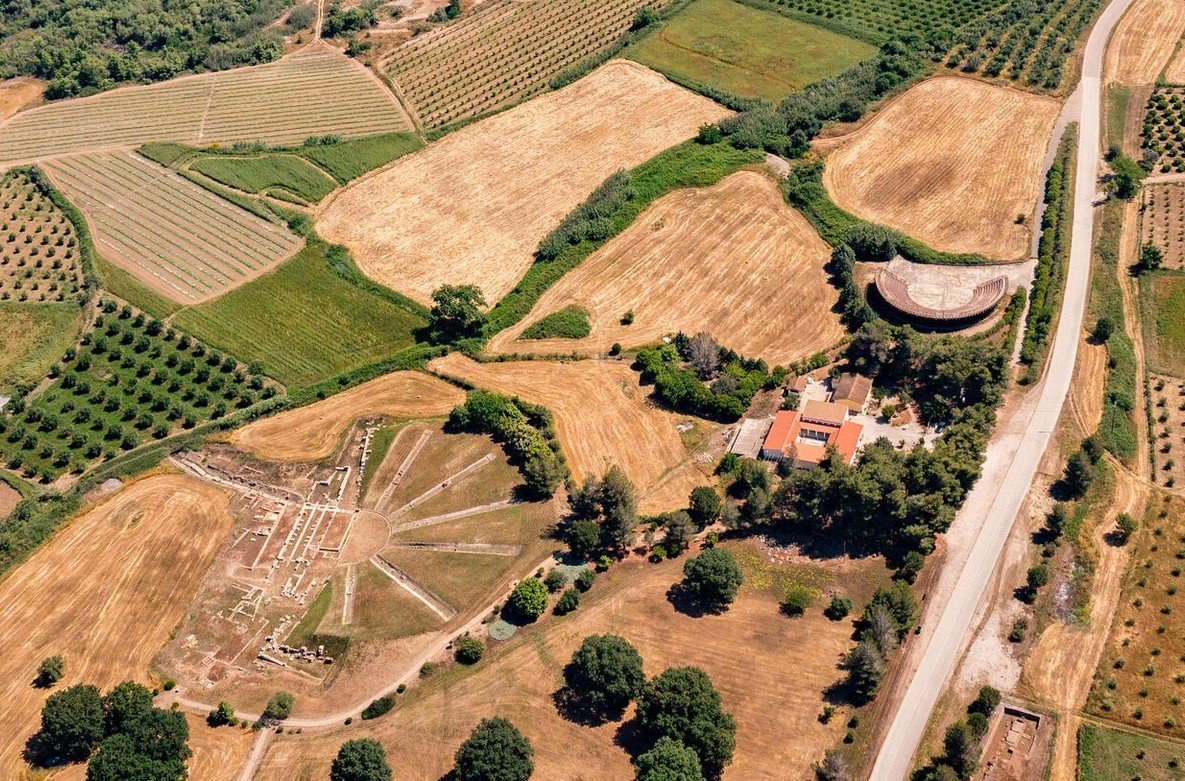PART B: THE FIRST period of the SYSTEMATIC EXCAVATIONS BY THE AUSTRIAN ARCHAEOLOGICAL INSTITUTE (1910-1914)
Austrian Archaeological Institute, Otto Walter, Anastasios Orlandos
At the beginning of the 20th century, the first systematic excavations began in ancient Elis (1910-1914, 1932), after Olympia had previously monopolized interest.
The excavation revealed important public buildings, such as the theater and various buildings of the Agora, which was facilitated by Pausanias’ description.
Despite the interruption due to World War I, the research was crucial for the subsequent discovery of the city, with the results being published in “Jahreshefte des Österreichischen Archäologischen Institutes in Wien“.

foreign archaeological schools
From the mid-19th century, the establishment of foreign archaeological schools in Greece began, with the aim of promoting archaeological research. At the Sanctuary of Zeus in Olympia, excavations by the German Archaeological Institute as early as 1875 had yielded impressive findings.
start of the survey
The Austrian Archaeological Institute undertook the first systematic research in ancient Elis. Excavations began in 1910 and were interrupted in 1914 due to World War I, while they continued in 1932. The excavation directors were Anton von Premerstein, Josef Keil and Otto Walter.
excavation work
A detailed topographic plan of the area was drawn up by Anastasios Orlandos. Important public buildings, such as the acropolis, the agora and the theatre, were uncovered and studied. Austrian archaeologists, guided by Pausanias text, identified various buildings and sites. Tombs, shreds and pieces of local pottery production and other finds and were also studied.
publications
The results of the excavations were published in the journal “Jahreshefte des Österreichischen Archäologischen Institutes in Wien”. In 1932, Franz Tritsch published a study on the Agora of Elis.
importance of the excavation
The excavation was important for the discovery of ancient Elis and the identification of important public buildings. The research of this era prepared the ground for the continuation of the excavation of the city.
the Austrian Archaeological Institute of Athens
(Österreichisches Archäologisches Institut (ÖAI) Athen) One of the 19 foreign archaeological institutes operating in Athens. It was founded in 1898 by the Austrian archaeologist Otto Bender, making it the fifth oldest of its kind in Greece.

